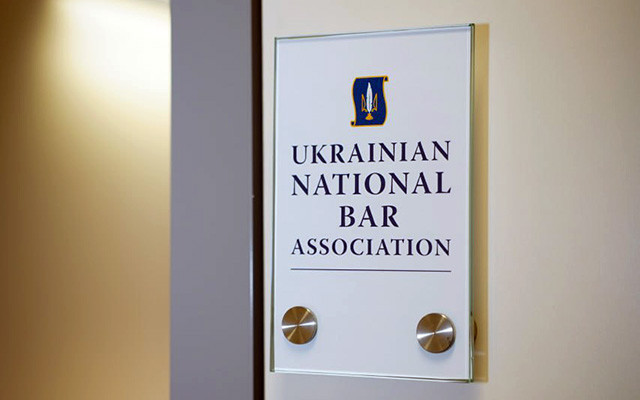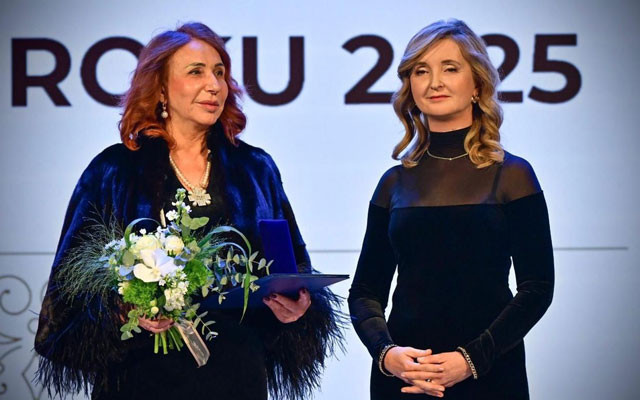Two criteria for insignificance of disputes do not comply with the Constitution - the decision of the Constitutional Court

The amount of the claim price defined in the CPC (as a criterion for classifying a case as minor) exceeds the subsistence minimum and minimum wage and does not correspond to the understanding of the case and the dispute in it as minor.
At the plenary session on November 22, 2023, the Second Senate of the Constitutional Court of Ukraine adopted the Decision in the case on complaints regarding the constitutionality of clauses 1, 5 of part 6 of Article 19, clause 2 of part 3 of Article 389 of the Civil Procedure Code of Ukraine.
As a reminder, according to the general rule of Article 131-2 of the Constitution, only attorneys-at-law may represent persons in court. However, the law may provide for exceptions that relate, in particular, to minor disputes. For example, Article 60(2) of the Code of Civil Procedure stipulates that in cases of minor disputes (minor cases), a representative may be not only an attorney, but also a person who has reached the age of eighteen and has civil procedural capacity.
The criteria for minor cases are defined in part 6 of Article 19 of the Code of Civil Procedure:
«6. For the purposes of the Code, minor cases are:
1) cases in which the price of the claim does not exceed one hundred times the minimum subsistence level for able-bodied persons;
...
5) consumer protection cases, where the amount of the claim does not exceed two hundred and fifty minimum subsistence levels for able-bodied persons».
In assessing these provisions, the Constitutional Court proceeded from the fact that the recognition of a case as insignificant and, as a result, its consideration, as a general rule, in the manner of simplified action proceedings is a prerequisite for compliance with reasonable time limits for court consideration, which is one of the main principles of judicial proceedings.
The shortened timeframe for consideration of minor cases and other procedural features of resolving minor disputes result in lower court costs for a person exercising his or her constitutional right to judicial protection, which generally facilitates access to justice.
In addition, the types of small claims cases defined by the CPC are consistent with the applicable EU provisions of the European Small Claims Procedure of July 11, 2007 No. 861/2007 as amended (The European Small Claims Procedure), approved by the European Parliament and the Council of the European Union.
The Court also examined the criteria of insignificance defined by the CPC for their proportionality and absence of discriminatory content in view of the amount of the claim. The state, in exercising its discretion to establish the amount of the claim as a criterion for classifying a case as insignificant in the procedural law, has an obligation to comply with constitutional principles and take into account the need for a legitimate purpose of using such a legal means of classifying civil cases as insignificant as the amount of the claim and the proportionality of this legal means.
In this regard, the amounts of the claim price as a criterion for classifying a case as insignificant, as defined in Part 6 of Article 19 of the Code of Civil Procedure in the amount of UAH 268,400 (paragraph 1) and UAH 671,000 (paragraph 5), are not only significant, but also exceed the statutory minimum subsistence level for able-bodied persons and the minimum wage and do not correspond to the understanding of the case and the dispute in it as insignificant.
Taking into account the above, the Constitutional Court concluded that subparagraphs 1, 5 of part 6 of Article 19 of the Code in this aspect contradict part 1 of Article 8 and part 2 of Article 24 of the Constitution.
The Constitutional Court also emphasized the obligation of Ukraine to ensure a high level of consumer protection through the creation and functioning of a mechanism for the exercise and protection of consumer rights.
In assessing clause 5 of part 6 of Article 19 of the Code, the Court recognized that the Verkhovna Rada has the authority to adopt laws that change the regulation of procedural relations involving consumers. However, such activities and the content of the laws must comply with constitutional requirements, in particular, the requirement of legal certainty in terms of predictability, motivation, and consistency of legislative regulation.
And the clause that classifies consumer protection cases as minor cases, where the amount of the claim does not exceed two hundred and fifty minimum wages, does not meet the requirement of legal certainty and is inconsistent with constitutional provisions and international obligations.
Separately, the Constitutional Court gave a legal assessment of the existing filters for cassation review of court decisions. According to Article 389(3)(2) of the Code of Civil Procedure, one of them is the insignificance of the case:
«3. Not subject to cassation appeal:
...
2) judgments in minor cases and in cases with the value of the claim not exceeding two hundred and fifty times the minimum subsistence level for able-bodied persons, unless:
a) the cassation appeal concerns a question of law that is fundamental to the formation of a unified law enforcement practice;
b) the person filing the cassation appeal is deprived of the opportunity to refute the circumstances established by the appealed court decision in the course of consideration of another case in accordance with this Code;
c) the case is of significant public interest or is of exceptional importance for the party to the case filing the cassation appeal;
d) the court of first instance classified the case as insignificant by mistake».
The Constitutional Court noted that the filters generally have a legitimate purpose - to comply with the principle of finality of a court decision (res judicata) as one aspect of the requirement of legal certainty. Compliance with this principle is crucial to ensure respect for the court, its decisions and the effectiveness of the entire justice system in the country.
The current regulation in the Code of Procedural Relations on the cassation review of court decisions in civil cases is consistent with the provision of clause 8, part 2, Article 129 of the Basic Law and corresponds to the role of the Supreme Court not only as a court of cassation in civil cases, but also as the highest court in the judicial system of Ukraine. The Supreme Court as a court of cassation in civil cases for cassation review of court decisions should exercise its powers to eliminate violations of substantive and/or procedural law, correct judicial errors and deficiencies in court decisions, and not to reopen the case and level the role of the courts of first instance and appellate courts in the administration of justice and resolution of civil disputes.
Popular news

Self-government
A report on Ukrainian advocacy was presented in the European Parliament
Can a shadow report on advocacy replace the political framework of the Roadmap on the rule of law with demands for the restructuring of self-government? Where is the line between accountability and the seizure of institutions? And how can we respond to narratives with data rather than impressions?

Guarantees of the practice of law
Proceedings opened following attack on advocate in Dnipro
The Committee for the protection of advocates' rights and guarantees of legal practice of the UNBA appealed to law enforcement agencies in connection with an advocate's report of an attack while performing his professional duties. The information was entered into the Unified Register of Pre-trial Investigations and a pre-trial investigation was initiated.

Abroad
UNBA office opens in EU capital
To strengthen the institutional presence of the Ukrainian advocacy community at the European level, an office of the Ukrainian National Bar Association has been opened in Brussels (Belgium), which will serve as a permanent platform for dialogue with European partners.

Guarantees of the practice of law
The President was urged to sign the law on strengthening guarantees for advocacy activities
The professional community of advocates called on Ukrainian President Volodymyr Zelenskyy to sign Law No. 4547-IX, which strengthens guarantees for advocates' activities, in particular by introducing liability for identifying an advocate with a client.

Greetings
Lidiya Izovitova received an award from the Czech Bar Association
On January 23, during the gala evening of the Lawyer of the Year 2025 competition in Prague, Monika Novotná, President of the Czech Bar Association (ČAK), presented Lidiya Izovitova, President of the UNBA, BCU, with the Order of the Czech Bar, an award for distinguished representatives of foreign bar associations.

Guarantees of the practice of law
Identifying an advocate with a client is a blow to justice, — V. Gvozdiy
By defending individuals in criminal proceedings, advocates are in fact fighting for every person's right to a fair trial. Therefore, any identification of an advocate with their client is a blow not only to the profession, but also to justice itself.

Guarantees of the practice of law
Impunity for public stigmatization of advocates violates the constitutional right to defense
The prohibition of identifying an advocate with a client is an international standard enshrined in the Law «On advocacy and legal practice». However, without accountability, this guarantee does not work, which poses a direct threat to the realization of the right to defense and the principle of adversarial proceedings.

Legislation
Inheritance of a share in joint property and more: advocates have made comments
In the event of the death of one of the subjects of joint shared ownership, the shares of each of the co-owners in the joint shared ownership shall be deemed equal, unless otherwise agreed between them, by law, or by a court decision.
Publications

Volodymyr Matsko Extradition as a systemic form of rights violations

Victoria Yakusha, Law and Business The anti-corruption vertical cannot «take care» of the Bar as an institution, - acting head of the HQDCB

Censor.net Protecting advocates – protecting justice: addressing concerns about the new law

Ihor Kolesnykov A BRIEF SUMMARY REGARDING THE APPLICATION OF THE ORDER ON EXTENDED CONFISCATION IN LATVIA REGARDING FINANCIAL ASSETS OF…

Valentyn Gvozdiy WORKING IN A WAR ZONE

Lydia Izovitova Formula of perfection

Sergiy Vylkov Our judicial system is so built that courts do not trust advocates

Iryna Vasylyk Advocacy in the proclamation of Independence of Ukraine
